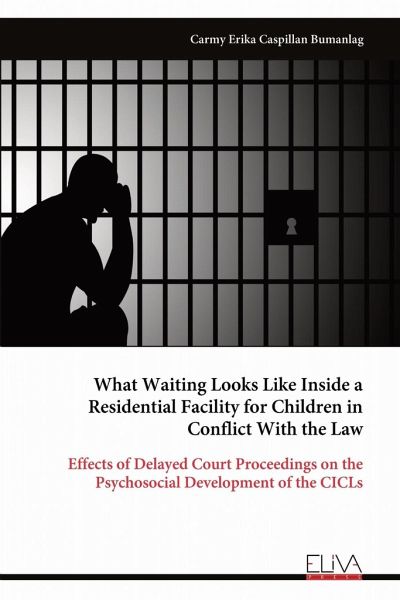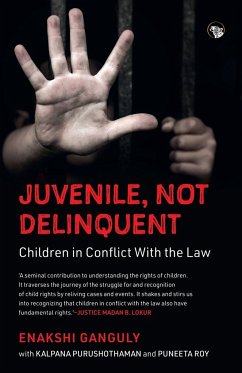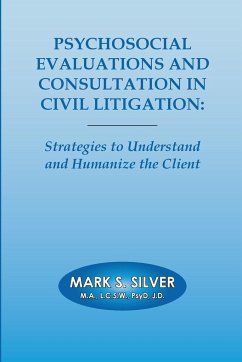
What Waiting Looks Like Inside a Residential Facility for Children in Conflict With the Law
Versandkostenfrei!
Versandfertig in 1-2 Wochen
51,99 €
inkl. MwSt.

PAYBACK Punkte
26 °P sammeln!
Delays in court proceedings that result in delayed justice delivery are inevitable realities that are influenced by various factors, including jurisdiction size, docket management, case classification, calendaring, and court practices. Despite the laws and policies that safeguard the rights of Children in Conflict with the Law (CICL) against unjust incrimination and unlawful detention, numerous concerns regarding the lengthy confinement of CICL still persist. The COVID-19 pandemic crisis further compounds the impact of delays on court processes, leading to increased dockets and hearing resets....
Delays in court proceedings that result in delayed justice delivery are inevitable realities that are influenced by various factors, including jurisdiction size, docket management, case classification, calendaring, and court practices. Despite the laws and policies that safeguard the rights of Children in Conflict with the Law (CICL) against unjust incrimination and unlawful detention, numerous concerns regarding the lengthy confinement of CICL still persist. The COVID-19 pandemic crisis further compounds the impact of delays on court processes, leading to increased dockets and hearing resets. Therefore, the study aims to assess the effects of delayed court proceedings on the psychosocial development of CICL. A qualitative design and phenomenological approach are employed to explore the experiences and perspectives of the primary participants and key informants to shed light on the outcome of delays. The study focused on the three domains of psychosocial development which are the responsibility domain, temperance domain, and perspective domain. The results show that delays have no direct influence on the resistance or susceptibility of the CICL to peer influence, but it is found to be a contributing factor to establish CICL's identity in their present social context in Bahay Pag-asa. Delays also affect their behavior, potentially leading to impulsivity, aggression, and negative responses to the family court or justice system. It triggers and develops psychological distress and depression. Furthermore, delays can trigger psychological distress and depression, challenging CICL's perception of their rehabilitation and shaping their coping mechanisms. Furthermore, the research presents a comprehensive definition of delay derived from the perspectives of the participants. According to this composite definition 'A delay refers to the postponement, cancellation, and resetting of court proceedings, which is inadvertent in manner and is deemed unjustifiable by the CICL. Delays are granted from either meritorious grounds or unwarranted factors associated with both old and conventional court practices, as well as unprecedented social phenomenon.'














